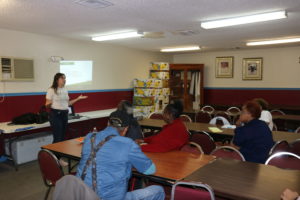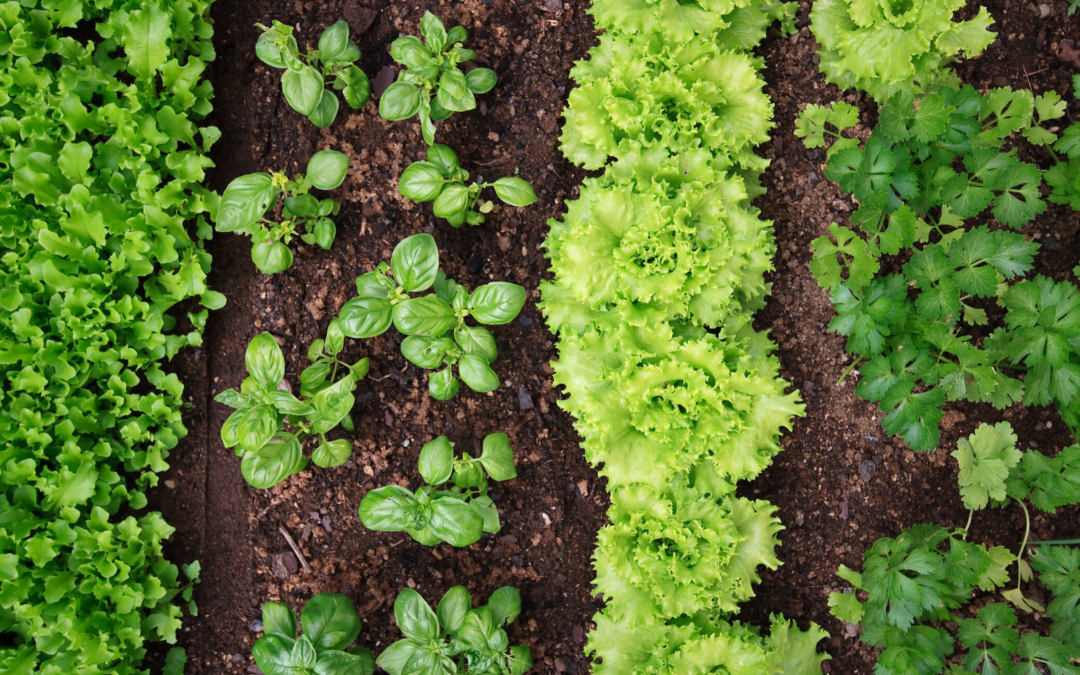Pepper your pretty landscaping with fruits, vegetables, and herbs. Edible gardening provides fresh, healthy food to gardeners – and can save them from a trip to the grocery store.
In March 2019, participants of Habitat for Humanity Greater Orlando & Osceola County’s Neighborhood Revitalization program learned about edible gardening. The tutorial was led by Fleet Farming, a local nonprofit urban agriculture program that wants to increase food accessibility through gardening.
Habitat Orlando & Osceola works with neighborhoods to improve members’ quality of life through home repairs and community development. Participating community members commit to sweaty equity, or volunteer hours, in their neighborhood. This work can include everything from fixing up homes to taking an edible gardening class, among other courses.
Here are some tips we learned in this tutorial that you could use in your own garden:
Keep companion planting in mind
Like Scooby Doo and Shaggy, salt and pepper, or peanut butter and jelly – some pairs only benefit each other. Likewise, companion planting simply means growing a diverse mixture of plants that help each other by preventing certain pests, increasing soil nutrients and more.
A few good plant pairs include:
- Tomato and basil.
- Collards and garlic.
- Beans and marigolds
Consider composting
Composting may sound … icky … at first read. It involves letting fruit and vegetable scraps decompose in a controlled environment. The resulting mixture can be a helpful addition to your soil. Here are some steps to create your own compost:
- Keep a container in your freezer to collect any fruit and vegetable scraps. Meat, bones, fats, oils, dairy, and grease should not be included.
- Once it’s filled to your liking, transfer the pieces to a hole in your garden or a compost bin. One simple way to create a composter is to remove the top of a plastic storage bin. Place the bin, open side down, onto a remote section of your garden. Carve a hole in the new “top” of the bin – that can be plugged up – in order to add produce scraps. Remember to add “brown” materials such as dead leaves to your compost heap. Stir the mixture regularly using a shovel.
Opt for natural pesticides
Anyone who has mistakenly eaten cayenne sprinkled on their food knows this spicy herb can be pretty unappetizing. Simply combine minced garlic, water and a few sprinkles of cayenne, and spray the mixture onto your plants. Just remember to give any produce a thorough wash before mealtime – or enjoy a spicy snack. Other options include soapy water or neem oil, a natural pesticide that can be found at most home improvement stores.
Another, less spicy, option is to plant marigolds among your vegetables. This flower attracts insects that are good for your plants – while warding off pests.
Remember your seasons
Floridians know that our state’s climate falls into two seasons: hot and hotter. While the warm temperatures make it possible to grow year-round, some plants fair better at certain times of the year.
- Spring: Sweet corn, cucumber, tomatoes, and watermelon.
- Summer: Sweet potatoes, southern peas, cherry tomatoes, and okra.
- Fall: Broccoli, collards, lettuce, carrots, Brussels sprouts and radishes.
Fruit trees are easy additions
If planting fruit or vegetable plants seems overwhelming or time-consuming, a fruit tree is an easier starter for your edible garden. Once planted, fruit trees are fairly self-sufficient. Banana, mango, and papaya trees are good options for Florida’s climate.
If all else fails: Start small. Herbs and tomato plants do well in pots. Containers retain water – making it easy to ensure your plants are well-hydrated in hot Florida.
You can help more local families experience the peace and freedom of owning an affordable home. When you donate to Habitat Orlando & Osceola, every dollar helps us build homes and work toward a world where everyone has a safe and affordable place to live. You can make bring hope home through homeownership; please give today.


Recent Comments